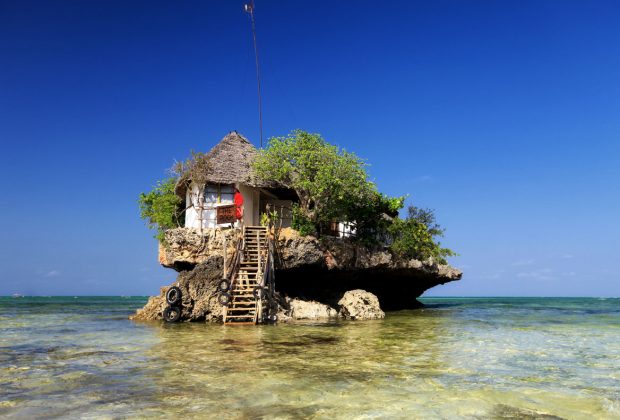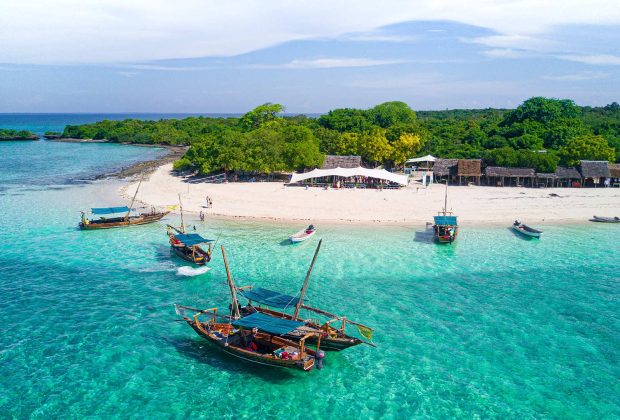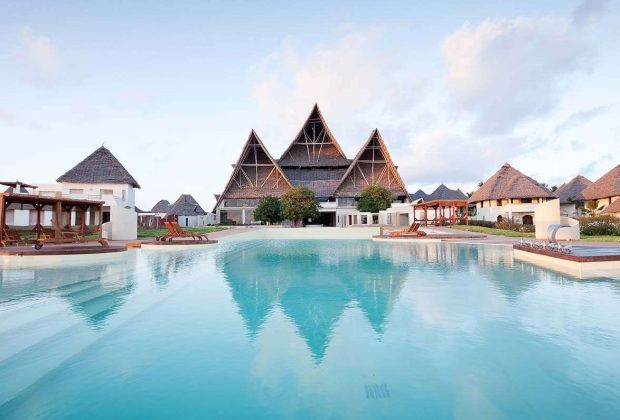6 Days Zanzibar Safari Tours




This 6 Days Zanzibar Safari Tours captures Zanzibar’s essence with a mix of history, relaxation, and adventure. Explore the charming streets of Stone Town, experience the island’s renowned spice farms, and unwind on stunning beaches. Enjoy a snorkeling trip to Mnemba Atoll and a traditional dhow sunset cruise, making the most of Zanzibar’s cultural and natural beauty in a short stay. Book 6 Days Zanzibar Safari Tours now
Day 1: Arrival and Stone Town Exploration
- Arrival at Abeid Amani Karume International Airport.
- Transfer to Stone Town for check-in at a central hotel.
- Afternoon: Guided tour of Stone Town’s historical sites, including the House of Wonders, Old Fort, Freddie Mercury House, and Slave Market Memorial.
- Evening: Stroll through Forodhani Gardens for the local evening food market.
- Overnight: Stone Town.
Day 2: Prison Island and Spice Farm Tour
- Morning: Boat trip to Prison Island to see giant tortoises and learn its history.
- Afternoon: Head to a Spice Farm to discover and taste Zanzibar’s famous spices.
- Transfer to a beach hotel in Paje or Jambiani on the East Coast.
- Overnight: Paje or Jambiani.
Day 3: Relaxation and Water Sports in Paje
- Day at leisure to relax on the beach, swim, or enjoy optional water sports like kite surfing or paddleboarding.
- Overnight: Paje or Jambiani.
Day 4: Snorkeling at Mnemba Atoll
- Morning: Full-day snorkeling trip to Mnemba Atoll, where you can swim among vibrant coral reefs and tropical fish.
- Lunch: Picnic on board or on a nearby beach.
- Evening: Return to your beach resort.
- Overnight: Paje or Jambiani.
Day 5: Jozani Forest and Sunset Dhow Cruise
- Morning: Visit Jozani Forest to spot the rare Zanzibar Red Colobus monkeys.
- Afternoon: Leisure time at your hotel or local exploration.
- Evening: Enjoy a sunset dhow cruise for a peaceful end to the day.
- Overnight: Paje or Jambiani.
Day 6: Departure
- Morning: Relax at the beach or shop for souvenirs.
- Transfer to Airport for departure.
Activities/services included in the cost:
- Accommodation as per the itinerary
Lodges on Full Board - Road transportation in 4wd land Cruiser safari vehicle
Game drives as per the itinerary - Park entrance fees and crater service fees
- English Speaking guides available for the safari
- Accommodation as per the itinerary
Activities/services excluded in the cost:
- Visit to Masai Cultural Village
- All International Flights/local Flights + Taxes
- Visa fees, Travel & Personal accident insurance
- Excursions, services and activities not mentioned in this program
- Personal expenses e.g. laundry, telephone calls, Drinks, Tips and gratuities
Passenger Information
- Passengers should bring only duffle bags safaris{not suitcases}
- All the passengers must have Identification Card/Passport with them for internal flights.
- Baggage on domestic flights is strictly limited to 15kgs per person (including hand luggage). Any excess baggage will be charged by the airline at check-in.
- Passengers arriving to Tanzania may be asked to present a valid Yellow Fever Vaccination Certificate
- Tourist Visa will be obtained at the entry points, but it is advisable to double check before travelling to Tanzania.
What is the best time of year to go on a safari in Tanzania? The best time for a safari in Tanzania depends on your preferences. The dry season (June to October) is ideal for wildlife viewing as animals gather around water sources, but it’s also the busiest time. The wet season (November to May) offers lush landscapes and fewer tourists, but wildlife may be harder to spot due to thick vegetation.
What should I pack for a safari in Tanzania? Essential items include lightweight and neutral-colored clothing, sturdy walking shoes, a wide-brimmed hat, sunscreen, insect repellent, binoculars, a camera with extra batteries and memory cards, and any necessary medications. It’s also advisable to pack layers as temperatures can vary throughout the day.
Do I need a visa for Tanzania? Most visitors to Tanzania require a visa, which can be obtained upon arrival at the airport or purchased online in advance. Visa requirements vary depending on your nationality, so it’s important to check the latest information before traveling.
Is it safe to go on a safari in Tanzania? Tanzania is generally safe for tourists, including safaris, but it’s important to take standard precautions such as staying updated on travel advisories, avoiding isolated areas at night, and following the guidance of your tour guides.
What types of accommodations are available on safari? Accommodation options range from luxury lodges and tented camps to budget-friendly campsites. Luxury lodges typically offer comfortable amenities such as en-suite bathrooms, gourmet meals, and swimming pools, while tented camps provide a more authentic safari experience with canvas tents and communal dining areas.
What wildlife can I expect to see on safari in Tanzania? Tanzania is home to a diverse array of wildlife, including the Big Five (lion, elephant, buffalo, rhino, and leopard), as well as cheetahs, giraffes, zebras, wildebeests, hippos, crocodiles, and a variety of bird species. The specific animals you’ll encounter will depend on the location and time of year.
Are safaris suitable for children? Many safari operators offer family-friendly safari options, including accommodations with family rooms, shorter game drives, and child-friendly activities. However, it’s important to consider the age and interests of your children when planning a safari and to choose activities that are suitable for them.
What is the typical duration of a safari in Tanzania? Safari durations can vary depending on your preferences and itinerary. Most safaris range from a few days to a week or more, with shorter safaris focusing on specific national parks or wildlife areas and longer safaris covering multiple destinations. Customized itineraries are also available to suit individual preferences and schedules.
